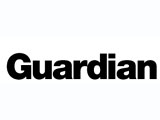|
|
TODAY.AZ / Politics
The Guardian: "Rodeo diplomacy"
10 May 2006 [09:11] - TODAY.AZ

Dick Cheney's just-completed east European rampage left Russia in a rage. Peppering grapeshot in his inimitable way, the US vice-president accused the Kremlin of using oil and gas exports to "intimidate and blackmail" European neighbours; of "interfering with democratic movements" in places such as Ukraine; and "unfairly and improperly restricting" civil rights.
Mr Cheney's rodeo diplomacy in Lithuania, Croatia and Kazakhstan, all formerly in the Soviet sphere of influence, recalled his roots in Wyoming's cattle-lands. And his down-home criticisms produced a stampede of uptight Russian officials angrily shooting back. The old cold war hustler did not know what he was talking about, they said.
But Sergei Lavrov, Russia's foreign minister, kept cool. "I believe such statements won't undermine efforts we are making together with the United States ... to build a fair world without conflicts," he said. "Russia expects to be perceived as an equal partner in the world arena without whose involvement it is impossible to solve a single problem."
Such calm assurance about Russia's rightful international role may help explain Mr Cheney's frustration. From Vladimir Putin down, Moscow's new-century message is that Yeltsin-era weakness has finally been banished. The Kremlin is a global player once more, whether the issue is Iran or Hamas, global warming or energy security. Buoyed by an ocean of petro-dollars and a reviving nationalism, Russia is back - and, Mr Lavrov implied, the US must deal on its terms.
Pre-emptive US attempts to avoid embarrassment for George Bush at the July G8 summit, to be hosted by Mr Putin in St Petersburg, illustrate the changing power balance. Officials have reportedly urged Moscow to bolster its democratic and free market credentials by easing restrictions on foreign-funded NGOs and guaranteeing energy supplies. But Russia has shown scant interest so far.
When Mr Bush called Mr Putin last week to seek his support on Iran, the Russian leader countered with a demand that talks on Russia's World Trade Organisation membership be speedily concluded. Mr Bush promised to help - meanwhile, Russia is still blocking UN action against Tehran. Similarly, the US has looked on as Moscow has imposed de facto trade sanctions on Georgia, encouraged counter-revolution in Ukraine, and moved to rebuild its influence in central Asia.
According to Irina Yasina of Open Russia, a pro-democracy organisation founded by the jailed Yukos boss Mikhail Khodorkovsky, Mr Putin's power at home is expanding unchecked - and western concerns cut little ice.
"Putin needs to know when he has to stop - but he doesn't know," she said. "There is no real democratic opposition any more." Once the Petersburg summit was over, a new crackdown on NGOs was expected. "When the good guys leave town, real problems will begin."
US efforts to rein in Russia are also compromised by America's chronic foreign energy addiction - and perceived double standards. Trading on ties forged during his time as a Halliburton oilman in Texas, Mr Cheney urged Kazakh leaders to build new pipelines bypassing Russia. Soft-pedalling on autocratic Kazakhstan's (and Azerbaijan's) poor human rights record was a price he was apparently prepared to pay. But it still may not be enough to keep Moscow at bay.
Russia's increased economic and military collaboration with Beijing is another stumbling block. If Washington pushes him too hard, Mr Putin, like Richard Nixon in reverse, has a China card to play. Another reason, perhaps, for Mr Cheney's well-aimed but unproductive angst.
/www.guardian.co.uk/
URL: http://www.today.az/news/politics/25932.html
 Print version
Print version
Connect with us. Get latest news and updates.
See Also
- 28 February 2026 [15:55]
Timor-Leste President José Ramos-Horta to attend Global Baku Forum 2026 - 28 February 2026 [11:36]
Albanian President Bajram Begaj to visit Azerbaijan to attend 13th Global Baku Forum - 27 February 2026 [13:13]
Armenian "Ivan Vasilyevich": Seyran Ohanyan's wife may go to jail - 27 February 2026 [11:11]
Events in Sumgayit: it was necessary for everyone except Azerbaijan - 27 February 2026 [11:01]
President Ilham Aliyev, Prime Minister of Ethiopia hold one-on-one meeting - 27 February 2026 [10:00]
Ethiopia’s PM visits Victory Park - 27 February 2026 [09:50]
Ethiopia’s PM visits grave of National Leader Heydar Aliyev at Alley of Honor - 26 February 2026 [12:12]
From Strasbourg to Epstein Files: How Jagland destroyed Norway's relations with Azerbaijan - 25 February 2026 [12:12]
Peace agenda and memory of Khojaly are impossible without each other - 25 February 2026 [11:59]
President Ilham Aliyev attends opening of Lankaran State Vocational Education Center
Most Popular
 Events in Sumgayit: it was necessary for everyone except Azerbaijan
Events in Sumgayit: it was necessary for everyone except Azerbaijan
 President Ilham Aliyev holds expanded meeting with Ethiopian PM
President Ilham Aliyev holds expanded meeting with Ethiopian PM
 First Lady Mehriban Aliyeva meets with First Lady of Ethiopia
First Lady Mehriban Aliyeva meets with First Lady of Ethiopia
 Beyond optics: How Israel–India partnership alters Pakistan and Iran’s calculus
Beyond optics: How Israel–India partnership alters Pakistan and Iran’s calculus
 British Embassy in Baku reaffirms support for Azerbaijan’s territorial integrity
British Embassy in Baku reaffirms support for Azerbaijan’s territorial integrity
 Armenian "Ivan Vasilyevich": Seyran Ohanyan's wife may go to jail
Armenian "Ivan Vasilyevich": Seyran Ohanyan's wife may go to jail
 Pakistan declares 'open war' with Taliban as jets bomb Kabul
Pakistan declares 'open war' with Taliban as jets bomb Kabul
